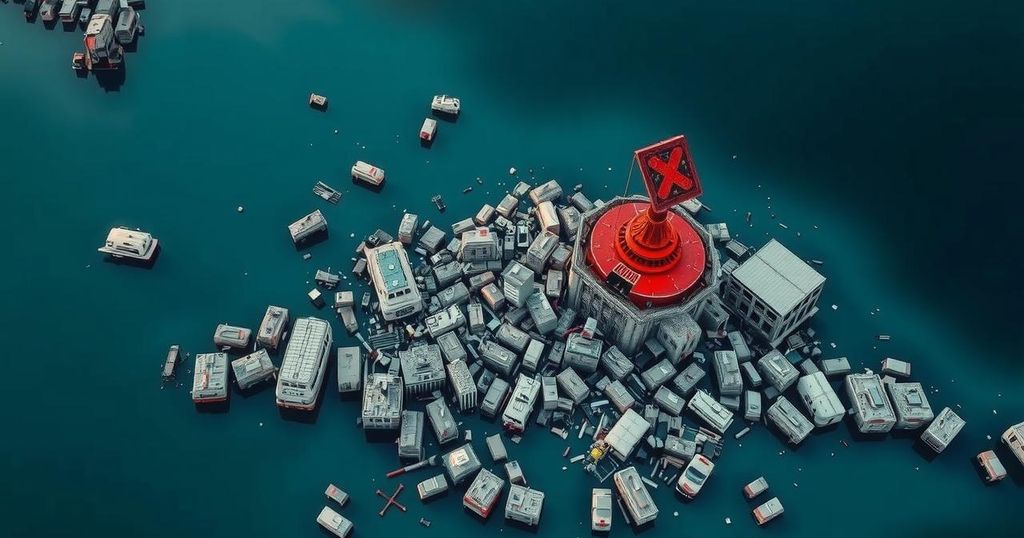Cuba experienced a 6.8 magnitude earthquake on Sunday amidst ongoing recovery from recent hurricanes, notably Hurricane Rafael. The quake, centered near Bartolomé Masó, led to panic but no immediate injuries or damages reported. The island is dealing with severe power outages following recent storms, resulting in public discontent and protests against the energy crisis.
On Sunday, Cuba was struck by a 6.8 magnitude earthquake in eastern regions, compounding the struggles of a nation already facing recovery challenges from recent hurricanes. The earthquake’s epicenter was located approximately 25 miles south of Bartolomé Masó, as confirmed by the United States Geological Survey. Key cities, particularly Santiago de Cuba, felt the tremors profoundly; however, initial assessments did not report any significant damage or injuries. Many residents in Santiago evacuated to the streets, displaying visible alarm. Yolanda Tabío, a concerned citizen, recounted her distressing experience during the quake, stating, “You had to see how everything was moving, the walls, everything.” This seismic event followed closely behind Hurricane Rafael, a Category 3 storm that ravaged the western parts of the island just days prior, exacerbating the situation with widespread blackouts and extensive damage to infrastructure. In the preceding weeks, Cuba had been grappling with severe long-term power outages linked to prior hurricanes, resulting in multiple fatalities. Such incidents have escalated public discontent and sparked protests. Currently, the ongoing energy crisis presents substantial obstacles to recovery efforts as the nation attempts to reconcile with the ramifications of multiple natural disasters.
The recent earthquake is the latest in a series of natural disasters that have afflicted Cuba. The country has faced an alarming frequency of hurricanes over recent months, particularly Hurricanes Ian and Rafael, which have inflicted significant damage on local infrastructure and disrupted daily life. Following these storms, widespread power outages have heightened frustration among the population, culminating in public protests. The continuous struggle with energy shortages has made recovery particularly challenging for Cuba, which must contend with both the immediate aftermath of the earthquake and the lingering effects of previous hurricanes.
In summary, the recent 6.8 magnitude earthquake further complicates Cuba’s recovery from recent hurricanes and associated power outages. As communities struggle to regain normalcy amidst emergency conditions, public unrest is on the rise, driven by frustrations over the ongoing energy crisis. Coordinated recovery efforts will be paramount to mitigate these challenges and restore stability to the affected regions.
Original Source: www.newser.com






